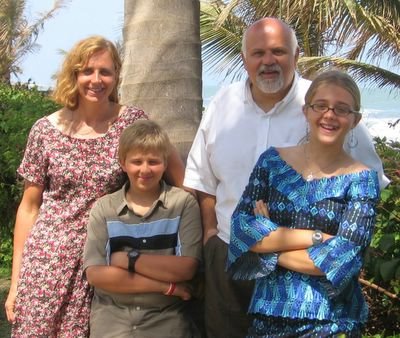Last week, the international Monetary Fund cancelled Liberia’s 800 million dollar debt to the organization. The IMF decision was a huge victory for the Sirleaf-Johnson administration, supported actively by the ONE campaign and US President Bush. Earlier this year Liberia’s three largest national creditor nations, China, Germany and the US, cancelled Liberia’s debts to their respective nations.
Debt cancellation is a controversial action, as it ought to be. Naturally, nations in debt have a responsibility to repay funds borrowed. But in the case of the Liberian debt, who really is responsible for it? As Josh Peck of ONE.org stated, “On April 12, 1980, Samuel Doe staged a military-coup in Liberia, killing the president in his home and bringing an end to the first African republic. During his decade of brutal dictatorial rule, Doe borrowed billions of dollars from international creditors to consolidate his power. Eventually, his regime collapsed into a bloody civil war that lasted 14 years and claimed the lives of 1 in 12 Liberians.But now Liberia has rebounded. There is peace, and
Ellen Johnson-Sirleaf, once a political prisoner during Doe's regime, has been elected as the first female head of state on the African continent. Sadly the Liberian people are still saddled with $4.5 billion of Doe's debt.”
For over twenty-five years, Liberia was ruled by bad guys and their henchmen. Power was stolen through assassination and maintained by brutal intimidation tactics. The Liberian loans were sought by ruthless criminals who ended up using the money for their own corrupt purposes or just wasting it through mismanagement. The men who secured these loans did not act in the interests of Liberia, and the money was not spent on Liberia. Yet the loan requests were granted. Incredibly, these loans were requested and granted in the midst of unprecedented Liberian instability. IMF and the other lending nations bear responsibility for approving bad loans that never made it to the intended beneficiaries, and it is just that they not require the people of Liberia bear the burden for repaying them.
So today, most of Liberia’s crippling debt burden is lifted. It appears the nations may be trying to do right by the Liberian people. Today, thanks to an honest and tenacious leader at its helm of state, Liberia is doing business with the world in a way that may right some of the past wrongs, and may actually impact the average Liberian. The debt relief removes the burden of crushing interest payments, and paves the way for smaller, wiser loans to be approved for the continued rebuilding of Liberia. We do not delude ourselves in thinking some money will not be eaten by some dishonest politician or contractor. But for the first time in a long time, Liberia is getting better. For the first time in almost two decades, the economy is improving. Roads are being rebuilt. Trash is being removed. The lights are coming on. For the first time in a quarter century, ordinary Liberians are beginning to believe they matter in the scheme of things.
It’s a good sign.
Debt cancellation is a controversial action, as it ought to be. Naturally, nations in debt have a responsibility to repay funds borrowed. But in the case of the Liberian debt, who really is responsible for it? As Josh Peck of ONE.org stated, “On April 12, 1980, Samuel Doe staged a military-coup in Liberia, killing the president in his home and bringing an end to the first African republic. During his decade of brutal dictatorial rule, Doe borrowed billions of dollars from international creditors to consolidate his power. Eventually, his regime collapsed into a bloody civil war that lasted 14 years and claimed the lives of 1 in 12 Liberians.But now Liberia has rebounded. There is peace, and
Ellen Johnson-Sirleaf, once a political prisoner during Doe's regime, has been elected as the first female head of state on the African continent. Sadly the Liberian people are still saddled with $4.5 billion of Doe's debt.”
For over twenty-five years, Liberia was ruled by bad guys and their henchmen. Power was stolen through assassination and maintained by brutal intimidation tactics. The Liberian loans were sought by ruthless criminals who ended up using the money for their own corrupt purposes or just wasting it through mismanagement. The men who secured these loans did not act in the interests of Liberia, and the money was not spent on Liberia. Yet the loan requests were granted. Incredibly, these loans were requested and granted in the midst of unprecedented Liberian instability. IMF and the other lending nations bear responsibility for approving bad loans that never made it to the intended beneficiaries, and it is just that they not require the people of Liberia bear the burden for repaying them.
So today, most of Liberia’s crippling debt burden is lifted. It appears the nations may be trying to do right by the Liberian people. Today, thanks to an honest and tenacious leader at its helm of state, Liberia is doing business with the world in a way that may right some of the past wrongs, and may actually impact the average Liberian. The debt relief removes the burden of crushing interest payments, and paves the way for smaller, wiser loans to be approved for the continued rebuilding of Liberia. We do not delude ourselves in thinking some money will not be eaten by some dishonest politician or contractor. But for the first time in a long time, Liberia is getting better. For the first time in almost two decades, the economy is improving. Roads are being rebuilt. Trash is being removed. The lights are coming on. For the first time in a quarter century, ordinary Liberians are beginning to believe they matter in the scheme of things.
It’s a good sign.



1 comment:
Just wanted to let you know that I pray for Liberia and its people. Perhaps God is using these political and financial moves to prepare for a great harvest.
Blessings!
Post a Comment